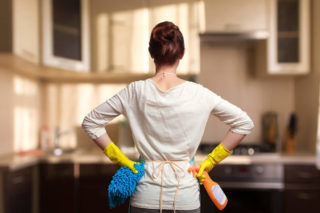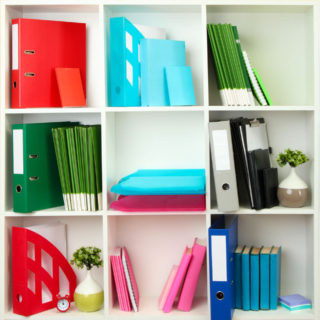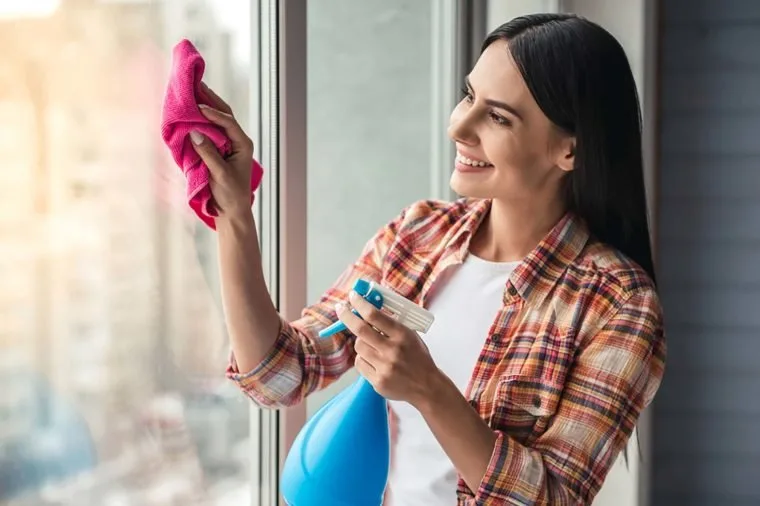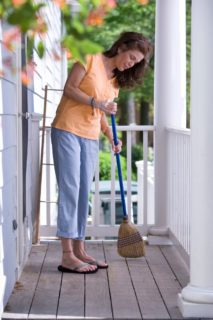Marie Kondo is the star of Netflix’s hit series ‘Tidying Up with Marie Kondo’. In the show, the best-selling author shares how audiences can organize and declutter their homes. Aside from creating a cleaner space, spring cleaning and decluttering can also provide you with many health benefits. In the process, you can accumulate large amounts of garbage that cannot be easily donated, recycled, or sold. In such a case, a dumpster rental service in West Chester can help you conveniently and efficiently eliminate unwanted items.
In her best-selling book, The Life-Changing Magic of Tidying Up, Kondo explains how the Japanese art of tidying up can help us clear our lives and homes of clutter which, in turn, does wonders for our health.
Why does cluttering happen?
Clutter can accumulate when you inherit stuff from loved ones. Attaching sentimental value to things can also make it harder to let go of them. Before you know it, you have a big pile of stuff that you love but have zero use for.
It also doesn’t help that you’re spending all your days indoors, causing you to buy stuff in an effort to pass the time, only to have zero use for your new purchases.
Read on to find out why you should get into tidying up your house as soon as possible.
Benefits of Tidying Up
1. It reduces stress
A study published in Personality and Social Psychology Bulletin found that a cluttered and disorganized home can increase stress levels – as if you didn’t already have enough to worry about.
Moreover, a Scottish Health survey found that just 20 minutes of housework can help to cut stress by 20%. So, next time you’re feeling overwhelmed with the world’s events, why don’t you try to clean out the garage? You’ll be surprised at how much calmer you feel once you complete the task.
2. It improves symptoms of depression
According to the same aforementioned study, cluttered homes seem to leave their occupants increasingly depressed throughout the day.
The same study found that coming home to an organized and clean space can help to improve mood and even reduce the risk of depression.
3. Tidying up keeps you fit
Staying fit and active is challenging on its own, and it’s made even harder during a pandemic. However, you may be surprised to know that household chores such as cleaning is its own effective workout. In fact, research from Indiana University found that those who are motivated to clean are more likely to be motivated to exercise.
Instead of spending all your time scrolling through newsfeeds, why don’t you set aside some time to do a little spring cleaning? In addition to slowly helping to declutter your house, experts have found that sitting for just half an hour less every day can help to lower your mortality risk (1).
4. It improves focus
It can be hard to focus a disorganized space, with one study from Princeton University presenting that a cluttered space can make it harder to concentrate. So, if you’re working from home, it’s best that you do so in a clutter-free environment – especially if you want to get any work done.
This is because, according to the same study, clutter limits the brain’s processing capacity yet clearing out the clutter can help to free up the brain and allow it to make more decisions.
5. It’ll help you eat better
Sticking to healthy eating practices is easier said than done, especially when you’re spending more time indoors in the midst of a pandemic.

PERFECTLAB/SHUTTERSTOCK
That said, a study published in Psychology Science found a strong association between a cleaner space and healthier food options. I suppose the cleaner the home, the cleaner the food?
6. It’ll prevent injuries
A cluttered home may be responsible for a number of senior falls and child injuries.
Both of these accidents can be prevented if you rid your home of unnecessary junk that may be making it difficult to navigate through the home.
7. Tidying up will help reduce allergens
Battling with allergies? Well, a study by the American College of Allergy, Asthma, and Immunity found that keeping your home clean and decluttered can help you avoid allergy symptoms.
How can I effectively clean?
 If you’re battling with decluttering your home, here are a few things you can learn from Marie Kondo’s book:
If you’re battling with decluttering your home, here are a few things you can learn from Marie Kondo’s book:
a. Keep items that make you happy
“… The best criterion for choosing what to keep and what to discard is whether keeping it will make you happy, whether it will bring you joy.” she writes in the book.
b. Change your perspective
Changing how you see the act of decluttering your home can make the process much easier.
“..We should be choosing what we want to keep, not what we want to get rid of.” writes Marie.
The bottom line
“Keep only those things that speak to your heart,” Marie explains. “Then take the plunge and discard all the rest. By doing this, you can reset your life and embark on a new lifestyle.”
Want to know more?
Being health-conscious should involve keeping your home safe and healthy too. So here are our hacks to a healthier home.
References
Dohrn, I. M., Kwak, L., Oja, P., Sjöström, M., & Hagströmer, M. (2018). Replacing sedentary time with physical activity: a 15-year follow-up of mortality in a national cohort. Clinical epidemiology, 10, 179–186. https://doi.org/10.2147/CLEP.S151613
McMains, S., & Kastner, S. (2011). Interactions of top-down and bottom-up mechanisms in human visual cortex. The Journal of neuroscience : the official journal of the Society for Neuroscience, 31(2), 587–597. https://doi.org/10.1523/JNEUROSCI.3766-10.2011
Saxbe, D. E., & Repetti, R. (2010). No Place Like Home: Home Tours Correlate With Daily Patterns of Mood and Cortisol. Personality and Social Psychology Bulletin, 36(1), 71–81. https://doi.org/10.1177/0146167209352864
Vohs, K. D., Redden, J. P., & Rahinel, R. (2013). Physical Order Produces Healthy Choices, Generosity, and Conventionality, Whereas Disorder Produces Creativity. Psychological Science, 24(9), 1860–1867. https://doi.org/10.1177/0956797613480186




![women [longevity live]](https://longevitylive.com/wp-content/uploads/2020/01/photo-of-women-walking-down-the-street-1116984-100x100.jpg)










